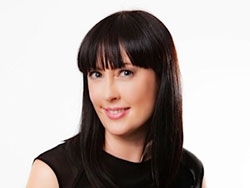Graduate nurses, midwives,
sonographers and specialists are continuing to be attracted to rural and other hard-to-staff communities in New Zealand.
Registrations for the 2015 intake of the nation’s Voluntary Bonding Scheme, the seventh intake of the incentive-based scheme, closed on March 13.
Subscribe for FREE to the HealthTimes magazine
The Health Workforce New Zealand initiative works to encourage
nurses,
midwives, doctors, radiation therapists and medical physicists into hard-to-staff specialities and communities faced with higher vacancy rates, greater locum use, longer waiting periods, and a higher use of overseas trained professionals.
For the first time, sonographers were added to the list of high-demand professions this year.
Health Workforce New Zealand manager Ruth Anderson said more than 3500 graduates have signed up to the scheme since it was first introduced in 2009.
“When the scheme was first introduced, there were 350 registrants on the scheme across the eligible professions,” she said.
“Those numbers have been exceeded every year and all eligible registrants have been accepted on to the scheme, to date.
“Registrations generally fluctuate between 400-500 each year in response to the changes in the hard-to-staff communities and specialties.”
Ms Anderson said hard-to-staff communities and specialties are revised each year, through a nationwide stakeholder consultation, and are based on the needs of the New Zealand workforce.
“The scheme is not just focused on specific areas but is aimed at communities as a whole,” she said.
“Rurality is a contributing factor with the majority of hard-to-staff communities encompassing rural areas.
“The scheme is an important component of an overall strategy to ensure New Zealand has a workforce that is serving the needs of rural and
remote communities.
“The steady number of applicants to the scheme shows that health professionals are going where they are needed most.”
Under the scheme, graduates are bonded for a period of up to five years with participants able to apply for reward payments after completing their bonding period.
The scheme features annual after-tax payments for five years of $3500 for midwives, $2833 for nurses, $10,000 for doctors, $3932 for medical physicists, $3375 for radiation therapists and $3932 for sonographers.
The first payment is payable upon completion of three years of bonded service, with two further payments made on completion of years four and five.
Health Workforce New Zealand will confirm successful applicant numbers in May.













